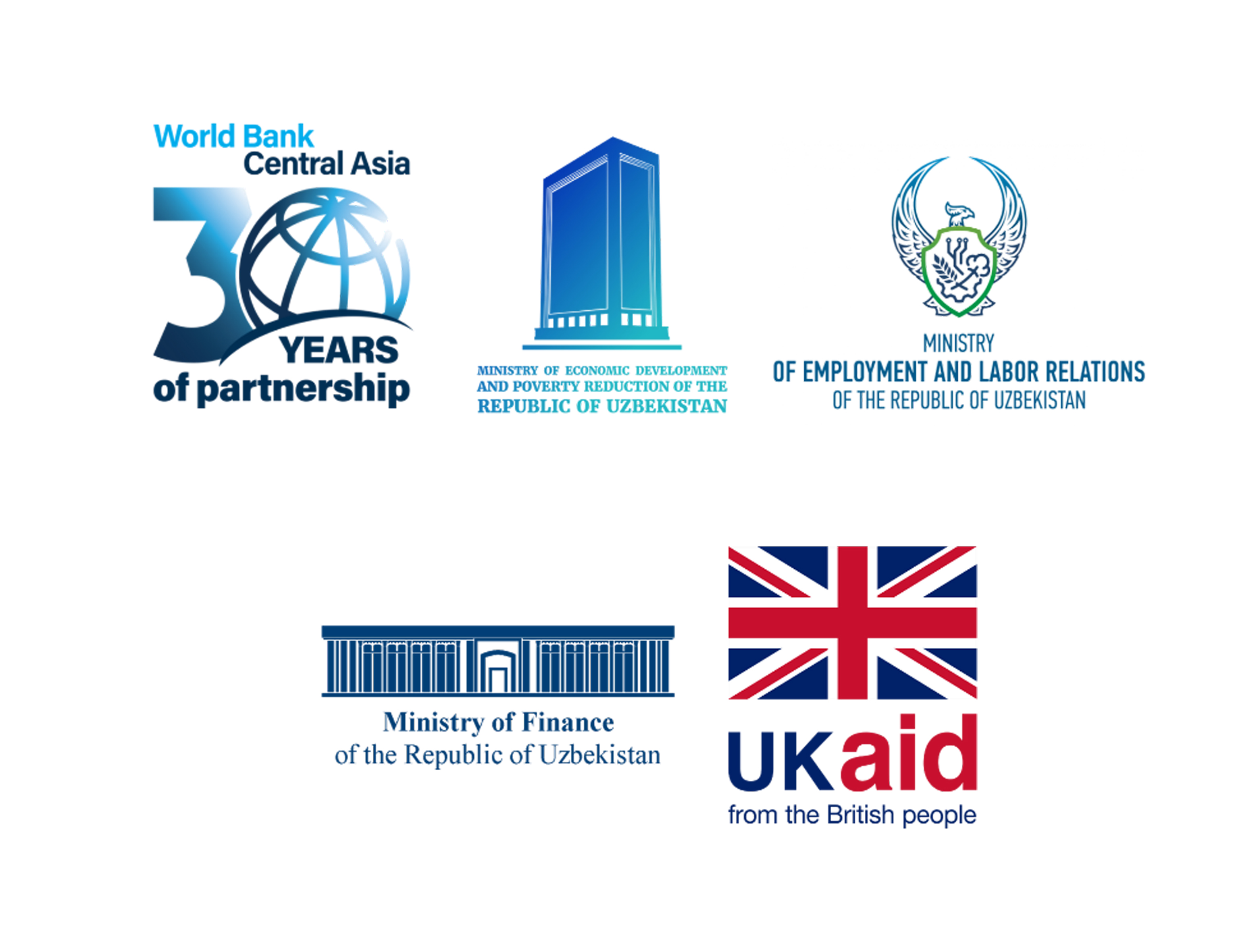Central Asian experts share progress on strengthening government policies with evidence and data

TASHKENT, May 24, 2022 – The World Bank, the Ministry of Economic Development and Poverty Reduction, the Ministry of Employment and Labor Relations, and the Ministry of Finance of Uzbekistan will host a two-day international high-level conference titled “Effective Governance for Economic Development in Central Asia”.
With support from the Foreign Commonwealth and Development Office (FCDO) of the United Kingdom,[1] participants from Kazakhstan, the Kyrgyz Republic, Tajikistan, Turkmenistan, and Uzbekistan will share international and regional experiences using modern data systems for creating and implementing government policies.
The conference will mark the official launch of the new Effective Governance for Economic Development (EGED) Program in Central Asia program funded by the UK government and implemented by the World Bank and ACTED. It is designed to improve the effectiveness, accountability, and transparency of economic policies in the Kyrgyz Republic, Tajikistan and Uzbekistan. The program supports governments to generate better data and evidence, use this data for policy design and implementation of economic reforms, improve coordination within government, and better engage with citizens.
“The UK launched EGED together with Kyrgyz, Tajik and Uzbek government partners to support more evidence-based policymaking in the region. We believe that the use of data and evidence is essential for more effective policymaking. We’re excited to bring together government and civil society partners from across the region at this conference to share lessons and discuss the next steps, as we scale up program activities, also in response to the UK’s new International Development Strategy that places emphasis on government institutional leadership”, stressed Mr. Mirza Jahani, Development Director for Central Asia, FCDO.
In Uzbekistan, the EGED Programme will assist the Government with reforming the labor market and developing an effective employment policy, developing and implementing policies for effective use of resources to transit to a green economy, restructuring of state-owned enterprises. It will also support the authorities in using evidence-based data to reform urban development and public procurement sectors, as well as to develop policies to reduce the shadow economy.
The conference in Tashkent has brough together over 150 participants from Kazakhstan, the Kyrgyz Republic, Tajikistan, Turkmenistan, and Uzbekistan, including experts in developing evidence-based policies and reforms, senior government officials, and representatives of civil society, think tanks, academic circles and international organizations.
“The momentum for improving the quality and use of evidence in Uzbekistan has intensified since 2016. Thanks to the policy of openness and transparency that the Government has chosen to follow, our country’s statistical capacity score has substantially improved every year since then. We are happy to share our experience and learn from the experience of our Central Asian colleagues attending the conference”, noted Mr. Jamshid Kuchkarov, Deputy Prime Minister and Minister of Economic Development and Poverty Reduction of Uzbekistan, in his welcome address.
The conference will focus on how data, research, and experimentation can be powerful enablers of positive policymaking that can support better public governance orientated towards equitable and inclusive economic growth in the Central Asian countries.
Participants will consider the issues of building capacity to generate evidence, including through national statistical systems, labor market information systems. They will share lessons on the interface between data production, data analysis and use of data for public policies, progress in evidence-based policy implementation, and approaches to strengthening the role of civil society.
Discussions will focus on generating evidence, and experts will show how cutting-edge analytical methods greatly improve the capacity of governments to create policy solutions. For instance, Mr. Nozim Khusanov, Minister of Employment and Labor Relations of Uzbekistan, will present a case study on data use and analysis for developing public policies and policy solutions for launching the first National Database of Vacancies and Labor Market Information System.
“In 2022, we are celebrating the 30th anniversary of the partnership between the Central Asian countries and the World Bank. Through the years, the main focus of this partnership has been to improve the wellbeing of the people living in the region”, said Ms. Tatiana Proskuryakova, World Bank Regional Director for Central Asia. “We have been providing financial and analytical support to build the capacity of the governments to improve data for creating and implementing policies oriented to the needs of citizens. We will keep helping the national partners achieve further progress in this direction, including through the EGED Program delivery”.
It is planned that following the event, participants will adopt a joint conference declaration. The draft document reconfirms their commitment to:
- mobilize evidence to generate inclusive growth, reduce poverty, prioritize the wellbeing of marginalized groups, and ensure equal access to opportunity for all of society to improve their lives;
- strengthen exchange across Central Asia in the production of rigorous evidence for more transparent, inclusive, and efficient policymaking;
- improve data and integrate evidence-based policymaking into various areas;
- make government data and evidence open and public by default;
- encourage the use of government data by the public, engage the public in policymaking, and raise the awareness about evidence-based policy in Central Asian countries.
For more information, please visit the conference webpage at http://wrld.bg/nFAE30sk3ju
[1] The views expressed during the conference do not necessarily reflect the official views of the UK Government.









